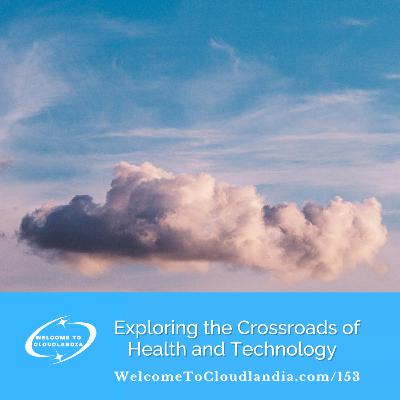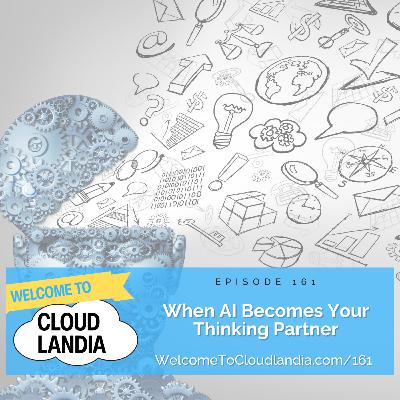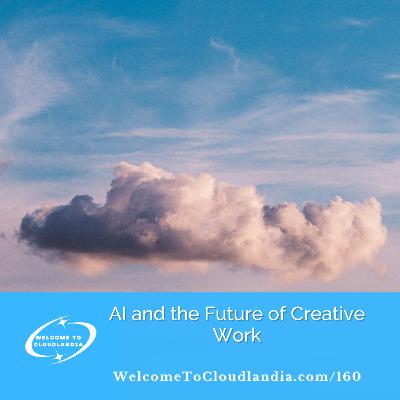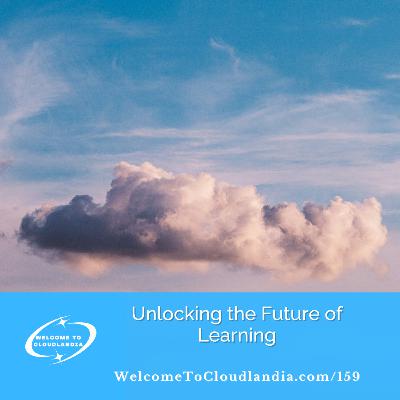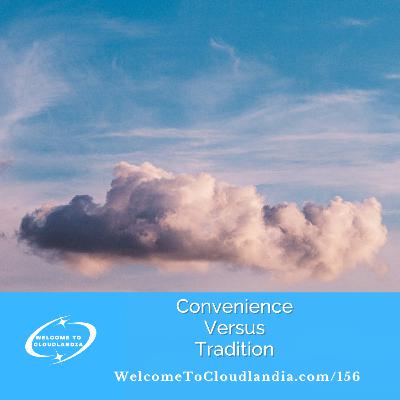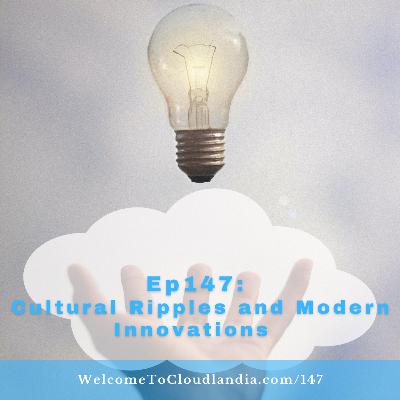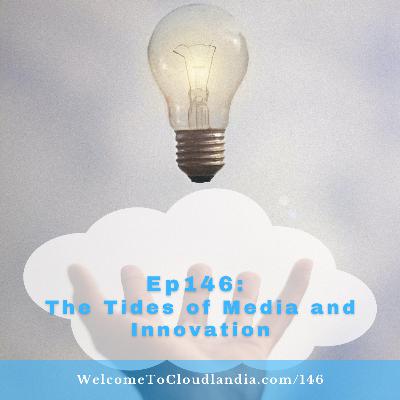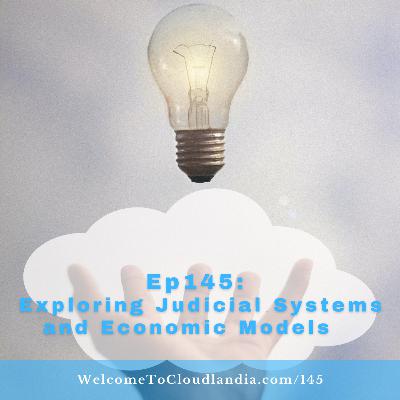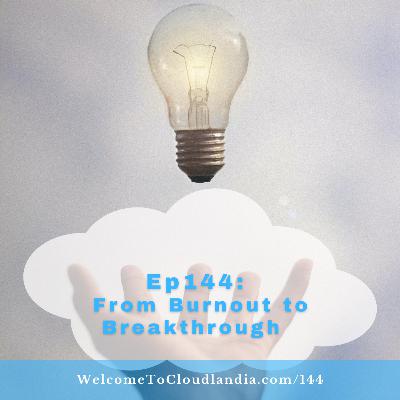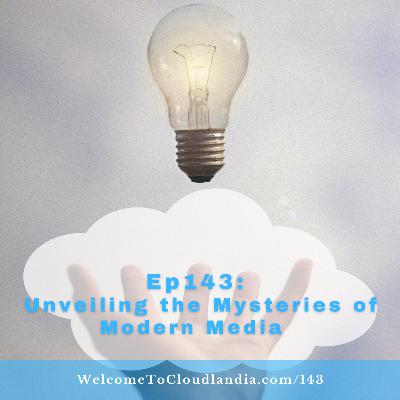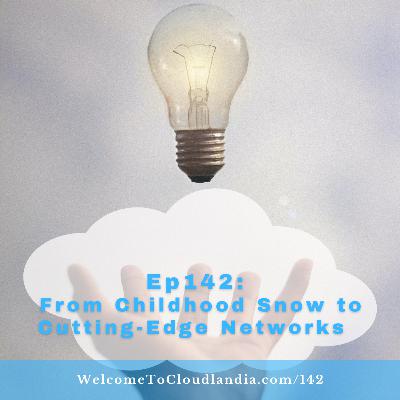Ep153: Exploring the Crossroads of Health and Technology
Description
In this episode of Welcome to Cloudlandia, I chat with Dan about his recent journey to Buenos Aires for stem cell therapy on his knee. After living with an injury since 1975, he shares how advancements in medical technology are providing new solutions for pain and mobility. We discuss the challenges of recovery and the impressive potential of these therapies, along with vivid stories from his experience in this vibrant city.
We also touch on the role of AI in our modern landscape, questioning its reliability and pondering whether it enhances creativity or simply recycles existing ideas.
As we explore the implications of AI, we consider how it can assist in achieving desired outcomes without requiring individuals to develop new skills themselves. Sullivan emphasizes the importance of meaningful work and the balance between utilizing technology and fostering genuine human creativity.
Our conversation wraps up by highlighting the ongoing journey of personal growth and the need for continuous improvement in an ever-evolving world.
SHOW HIGHLIGHTS
Links:
WelcomeToCloudlandia.com
StrategicCoach.com
DeanJackson.com
ListingAgentLifestyle.com
TRANSCRIPT
(AI transcript provided as supporting material and may contain errors)
Dean: Mr. Sullivan.
Dan: Mr Jackson, it's been a while, it's been a while.
Dean: And yet here we are. Like no time has passed.
Dan: Yes.
Dean: Because it's now.
Dan: But I've put on a lot of bear miles since I saw you last.
Dean: Yeah, tell me about your journeys.
Dan: Yeah well, buenos Aires. Yep Just got back yesterday and am in considerable pain. Oh really what happened. Well, they give you new stem cells. So now, they're going after. They're going still on the knee, but now they're going after tendons and ligaments, yeah, and so this may seem contrarian, but if you're in pain, it means that they're working.
Dean: Oh, okay.
Dan: How's that? For a compelling offer If you feel really bad about this, it means that what I'm offering you is a great solution.
Dean: Yeah, with a name like Smuckers, it's got to be good, right yeah? What was that cough syrup that was known to taste so bad? Buckley's, buckley's.
Dan:
Tastes so bad. Tastes awful Works great.
Dean: Yeah, that's right. That's the perfect thing. Tastes awful, works great. So were they completely pleased with your progress.
Dan: it's, yeah, I think that the from what I can tell from they. They show you pictures of other complete cartridges. You know, okay, with other people and my left this is my left knee an injury from 1975. 1975, uh-huh, so 50 years, and it progressively wore down.
It was a meniscus tear and in those days they would remove the torn part of the meniscus, which they don't do anymore. They have new surgical glue and they just glue it back together again. But this is the. This is one of the cost of living in over a period of history where things get better and so, as a result, I have a cartilage today which is equal and capability as it was before I tore it in 1975.
However, all the adjustments my left leg and my head to make, 50-year period of adjusting to a deteriorating capability in my left there was a lot of calcification and stresses and strains on the tendons. So now that they can see the complete cartilage back, they can know exactly what they have to do with the otherons. So now that they can see the complete cartilage back, they can know exactly what they have to do with the other things. So they still reinforce it. So I get new stem cells for the cartilage because it has to be reinforced and so it's a good thing. I'm planning to live another 75 years because I think every quarter over that period I'm going to be going to Argentina.
Dean: Oh boy, this is great.
Dan: Or Argentina, is coming to me. They're going through their FDA phases right now and he's getting the doctor scientist who created this is getting his permanent resident card in the United States. So I think probably five years five years it'll be available to others. You know they don't have to make the trip.
Dean: Well, that's great so now you've got the knee cartilage of a preteen Swedish boy. We were bouncing around the mountains.
Dan: Yeah, something like that, yeah, something like that, something like that it's interesting that it wasn't 1975 when the $6 million man started out.
Dean: That's what you're going to end up as the $6 million man. We can rebuild. We'll see.
Dan: Yeah, but I had. While we were there, we had a longtime client from Phoenix was down. He was working on knees and rotator cuffs in his shoulders.
Dean: And.
Dan: I was able to say does it hurt? And he says yes, it does, and I said that means it's working.
Dean: That means it's working.
Dan: Yeah, and I said. He said you didn't tell me about the pain part before you encouraged me to come down here and I said, well, why? You know? Why, pull around with a clear message.
Dean: And I said well, why, you know why fool around with a clear message, Right, I remember when Dave Astry had he had, like you know, a hundred thousand dollars worth of all of it done, all the joints, all the like full body stuff, and he was just in such pain afterwards for a little while. But how long does the pain last?
Dan:
Imagine it's like getting well, if I go by the previous trips, which were not equal in intensity to this one, there was about three or four days. Three or four days and then you know, you're, you're up and around. Yeah, as a result of this, I'm not going to be able to make my Arizona trip, because this week for genius Right, because? I'm going to have to be in wheelchairs and everything. And if there's one place in the world you don't want to be not able to walk around, it's Phoenix.
Because, it's all walking. That's the truth. Yeah, up and down. So we're calling that off for now, and yeah, so anyway, and anyway. But they're really thriving down there. They're building a new clinic in a different part of the city, which is a huge city. I never realized how big Buenos Aires is. It's along the same size as London, you know London.
Dean: England. Yeah right, you know how big London is. How long are you go on each trip? How long are you there?
Dan: We arrive on a Sunday morning and we leave on a Friday night. Okay, so the whole week. Yeah, yeah, it's about eight days, eight travel days, because on Saturday we have to go to Atlanta to catch the next plane.
Dean: Yeah.
Dan: That's either a dog or a monkey. Which do you have there?
Dean: That was a dog, my neighbor's. I'm sitting out in my courtyard. That was my neighbor's dog. It's an absolutely beautiful Florida morning today, I mean it is room temperature with a slight breeze. It's just so peaceful out here in my courtyard aside from working out Well.
Dan: you're close to the Fountain of Youth. That's exactly right. How many? 100 miles? 100 miles to the north, st Augustine, that's right. That's exactly right.
Dean: Yeah, this whole. Just look at.
Dan: The De Leon. That's right yeah.
Dean: This whole just look at the day.
Leon, yeah, I know my I think we're going to look back at this time. You know like what? You are on the leading

